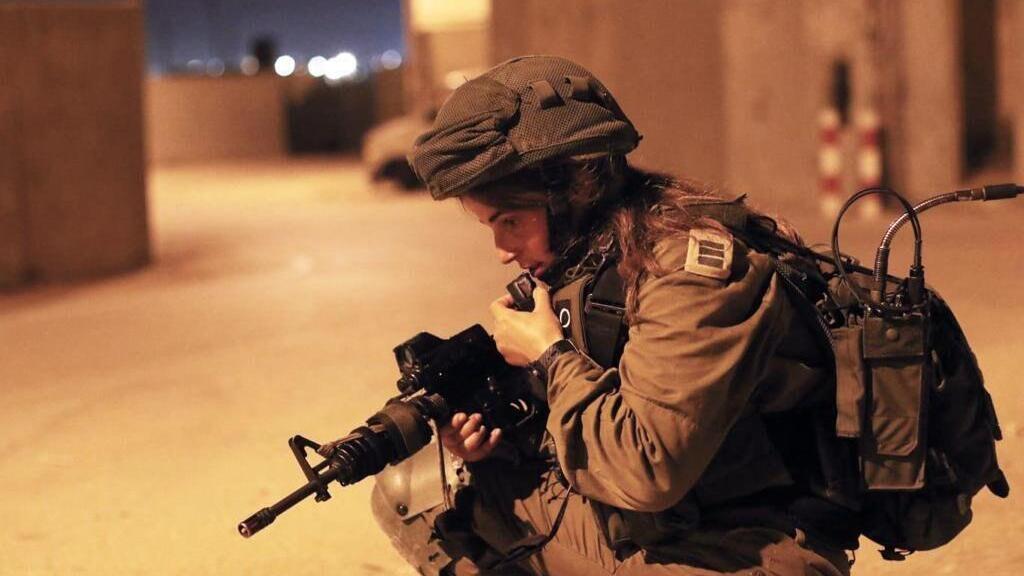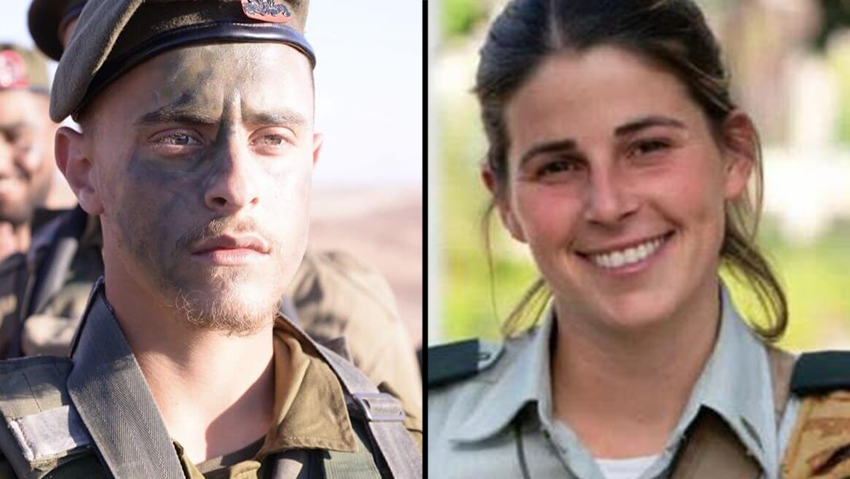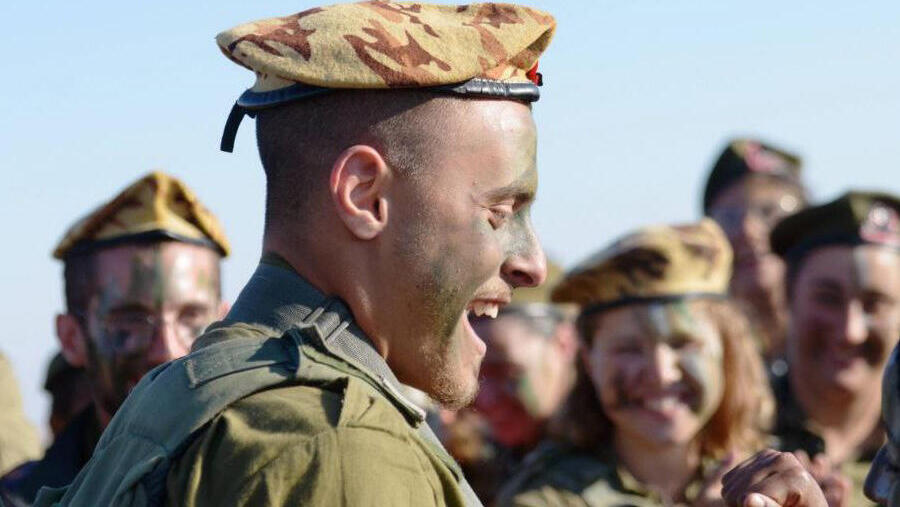Getting your Trinity Audio player ready...
Michal-Lee Eliel-Malka, the staff officer of the coed Caracal Battalion, was the commanding officer on duty last weekend when three IDF soldiers were killed after an Egyptian terrorist infiltrated Israel.
Read more:
Eliel-Malka recalled that on Saturday morning she received the initial report about the infiltrator who killed two soldiers in the nearby Mount Harif zone. On her way to the scene, she was informed about a third soldier who was injured during a confrontation, and immediately suspected it was Ohad Dahan, the beloved combat soldier who had served under her command and always maintained a close relationship with her.
"They told me on the radio that he was injured and they were attempting resuscitation, but I felt that he was no longer with us," she recalled. "I wasn't even surprised, Ohad was always the first to storm ahead."
Before Dahan was killed during the fire exchange with the infiltrator, Lia Ben-Nun and Ori Yitzhak Illouz were also killed during their guard duty.
Michal-Lee Eliel-Malka and Ohan Dahan first met during the training course, after Dahan was drafted to service in a combat unit in November 2021. At the time, Eliel-Malka was already an experienced combat officer, serving in her third role as an officer in the coed battalions, and Dahan was a young and inexperienced soldier who refused to give up on his dream of serving in the Golani Brigade. Something about the tense environment of the training course during the beginning of his IDF journey led to a deep connection between them.
3 View gallery


Michal-Lee Eliel-Malka is an officer in the coed battalions
(Photo: IDF Spokesperson's Unit)
"We talked about it a lot, we didn't stand in his way. The opposite, we tried to help him transfer to Golani," she recounted. "I accompanied him all the way to the Paran Brigade Commander, who after speaking with him, realized how much of a quality guy he was and promoted Ohad to serve closely with him in the command headquarters.
"On Wednesday of last week, he told me how satisfied he is with his decision to stay in the coed battalion," continued Eliel-Malka. "Recently, he had been telling me that, before enlisting, he didn't believe in female combat soldiers, but now he sees how operationally beneficial it is to serve together. And that it's crazy that he had a female commander. According to him, 'Those who haven't witnessed firsthand what it's like to serve alongside male and female fighters that serve together – don't truly understand it.'"
She added that he always invested himself in his role: "He always carried out the mission to the best of his abilities. It's a great loss."
On Saturday night, when she spoke with the brigade rabbi in an attempt to process what had happened, she heard from him how Dahan, who was also connected to him, almost predicted his own death. "On Friday, Dahan expressed his sadness to him about his upcoming departure and wondered what he would do without him. The rabbi replied, 'What's the matter with you? I'm leaving in five months,' and Dahan responded, 'For me, it's tomorrow morning.'"
With almost a decade of operational experience as a combat soldier and commander, Eliel-Malka recommends ignoring the insinuations and criticisms about the fallen soldier and female combatants, as well as of mixed-gender battalions altogether.
"The only thing that interests me and the female fighters when we sit in the ambush is the mission ... The integration of male and female fighters enhances operational effectiveness, and everything else is just background noise that shouldn't be part of the discourse."



